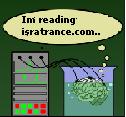| Author
|
ethno sound and legal issues
|
moki
IsraTrance Junior Member

Started Topics :
38
Posts :
1931
Posted : Aug 11, 2010 14:34:05
|
Hi there,
i have a question about the legal issues connected with remixing world music or using ethno samples in your tracks.
1. what is the right procedure - do you pay for the right to remake an old ethno song that you found in the cultural herritage of a country and whom do you pay? do you pay before that or after you make the track or only if you release it?
2. is it officially a remix or is it just using a sample?
3. are there differences according to the place where your label, firm etc is situated and according to the low of the country, or is it same internationally?
4. do you pay at all, or is it just normal for the trance circles not to pay for something like that? had anyone ever had problems being persued for that?
5. if there is an interpreter who sings an old song coming from an ancient culture and you use his voice as a sample - does he have the rights on the song?
6. wwhat about songs written hundreds of years ago that you take as score and use as score. who has the rights on that - the composer ( who is already dead) ?
|

|
|
A.Rosengren
Solid Snake

Started Topics :
266
Posts :
4139
Posted : Aug 11, 2010 16:24
|
f you use samples when writing or producing songs, one of the biggest favors you can do for your career is to understand the legal and business issues that surround the practice of sampling. The process of securing a sample for use in your own recording is fairly straightforward, but a legal minefield awaits you if you choose to skip any steps along the way.
First, I should define sampling and explain why it raises legal issues. Sampling is the technique of taking a small piece, or “sample,” of a preexisting piece of music and using the sample to create or enhance a different, new piece of music. Legal issues arise because the copyright law allows only the copyright holder of a work of art to make derivative works or changes in the original work. Sampling potentially violates the law regarding two separate copyrights, the copyright of the musical composition (the PA Copyright) and the copyright of the sound recording (SR Copyright). You need to obtain the permission of those copyright holders before using the original song or master. The process of getting that permission is known as clearing the sample.
LAYING A FOUNDATION
When clearing a sample, detail is crucial. Gather the following information for each sample you wish to clear and have it ready to present to the copyright holders: the name of the original composition, the artist who performs the master from which you obtained your sample, the record label of the master recording, the composer(s) of the composition, and the publishing company or companies of the composition. You will need to give the length of the sample you are contemplating using, defined in min:sec time as well as in number of measures (for example, “:30 seconds/16 bars of music”). Lastly, you must provide a description of the contemplated use of the song or master in your new recording defined in min:sec time, number of measures, and whether it will be looped or repeated (for example, “:15 seconds/four bars including the hook line from the original will be used in four separate choruses throughout the new version”).
Prepare a working copy of your new recording and have it ready to send to the copyright holders to show how you want to incorporate the original versions into your work. It is also a good idea to include a copy of the original recording. In this age of corporate mergers and acquisitions, you might be surprised at how many record companies and publishing companies have simply lost track of what is in their catalogs because they are so large.
CLEARANCE CORRESPONDING
With your information in place, you are now ready to contact the proper parties and begin clearing your samples. First, you must track down the addresses and phone numbers for the applicable record companies and publishing companies that own the copyrights for the original master recordings and songs. Record-label contact information can be obtained through a number of music industry directories, company Web pages, and, if all else fails, the phone book. Your detective work is a little easier for the musical compositions. Chances are the music publisher who owns the song you are trying to clear is affiliated with ASCAP, BMI, or SESAC in order to have its performance rights collected. All three of those performing rights organizations have Web sites with searchable databases that allow you to look up the contact information for their affiliated publishing companies. (For information about performance rights organizations and directories, see the sidebar “Sample Safari.”)
Well before you start to manufacture your CDs, send a written request for permission to sample the song to the label or publishing company. If the record companies and publishing companies you're writing to have licensing departments, direct your correspondence there; otherwise, send it to the business and legal affairs department. Call to get the name of the person to whom you should address your request. Your request should contain all of the information you have gathered, noting how many initial units you plan to manufacture, what your contemplated release date is, and how you can be contacted. If you have a dollar figure in mind as an offer to pay for the sample, you can include it in your initial request. Most labels and publishing companies will not consider a request made over the telephone or by e-mail unless you have previously done business with them.
SAMPLING DEAL POINTS
Now that you have set the clearance process in motion, here are a few of the major points to negotiate in order to use the sampled material, all of which will be incorporated in a sample clearance contract signed by both parties.
Song ownership
Who will own the “new” work? Some labels and music publishers will let you use their preexisting works only if they own all or part of the copyright in the new recording or song.
Sharing the wealth
If there is shared copyright, what will the royalty splits be?
Compensation
How will the original copyright holders be compensated? Common payment options include paying a flat fee (for example, “$500 for all rights with no further payments or royalties”), a rolling fee that gets paid over time (for example, “$200 upon signing, $300 upon release by a major label, and $100 for every 100,000 units sold”), or an ongoing royalty (for example, “20 percent of the statutory mechanical license rate for every record sold”). That is all negotiable, and there are no standard rates for samples, so the actual figures vary widely.
Crediting the original
How will the original copyright holders, composers, and artists be credited on artwork, press, advertisements, and future uses of new work embodying the original material? It is important to properly credit the original material. If not done or if done improperly, your release could be stalled until the error is corrected. Sample credits generally include the original artists, writers, record labels, and publishers along with the names of the writers and publishing companies of the new master and composition. They should also include copyright ownership information for the new version of a master or composition. That information is vital when it comes to doling out royalties earned by a recording containing a master. These points are usually set out in great detail in the licensing agreement.
Extent of usage
Is the sample limited to only one recorded version of your song, or do your rights extend to uses such as remixes or live performances?
Setting things straight
Be sure to get a warranty that the label or publishing company actually has the authority to grant you the rights to sample and that the rights granted to you extend to future owners of the original material (for example, if the catalog gets sold to another publisher).
Accounting
You will need to agree on how often you render accountings and pay for royalty-based fees.
Based on a number of factors — such as how large your sample is, how much you use it, how crucial it is to your new piece, whether it was a big hit originally, and whether you have a large major-label budget or a small indie budget — the ultimate terms and conditions of sampling agreements are varied. If you are signed to a major label, a sizable portion of your recording budget might be set aside and held back by your label simply to pay for sample clearances.
SOME ALTERNATIVES
The time it takes to clear samples yourself could be prohibitive and keep you away from your creative pursuits, so you might want to consider some alternatives. First of all, some companies have created royalty-free recordings that have authentic-sounding period pieces of music available for sampling at no cost beyond the price of the CD. You can also go into a recording studio with the musicians of your choice and create your own original master recording to sample in order to avoid going through the clearance process with a record label. Note, however, that if you take the cover-song route for sampling, you still have to clear the use of the composition with the publishing company that owns the rights to the song.
You can also hire a third party to clear the samples for you. Sample clearance specialists will do all of the necessary work to secure the rights you need to clear your samples. Their fees vary from hourly to per song to project-based. Referrals to sample clearance companies can be obtained from record labels, your performing rights organizations, or — as always — your fellow musicians and producers in the business. (See the sidebar “Sample Clearance Services” for a few of those companies.)
DANGER, DANGER
I hear a few misunderstandings about sampling on a regular basis. I'd like to address those once and for all to warn you well in advance of having your CDs pulled off of shelves and your bank account frozen.
No freebies
“I sampled only six bars; I thought that as many as eight is free.” That is simply a record industry urban legend. There is no “free zone” when it comes to copying someone else's work. Keep in mind that a great hook in a song could be as short as one measure or even a couple of seconds. If it's identifiable, clear it.
Safety clearance
“I processed the sample so it no longer sounds like the original, so I don't have to clear it.” A good rule of thumb is this: if you didn't write it, you need to clear it.
Don't put off until tomorrow …
“I'm just a little guy. I'll take care of it after it goes Platinum; by then I'll have the money to do it.” If you follow the number of major stars who have had to pay off on uncleared sample uses, it should be obvious that waiting until a song is a hit can put you in the worst possible bargaining position to negotiate a sample use. It's better to make a good-faith effort to clear the sample up front, structuring payments based on an indie release and major releases, rather than putting it off completely.
CLEARED FOR LANDING
The art and business of sampling is here to stay, and the industry has adapted to it by shifting the responsibility of sample clearance to those who are doing the sampling. By using the tips and principles outlined here as a guideline, you can sidestep several possible problems that await you as you try to survive sampling.
Michael A. Aczon practices entertainment law and is a member of the music business faculties of San Francisco State University and Diablo Valley College in Northern California. He recently “male bonded” with his 12-year-old, Evan, treating him to his first-ever rock concert.
SAMPLE SAFARI
Directories
ArtistPro, publisher of Recording Industry Sourcebook
tel. (707) 554-1935
Web www.artistpro.com
Billboard Directories, publisher of Billboard International Buyer's Guide
tel. (800) 344-7119 or (732) 363-4156
e-mail ndavis@bpicomm.com
Web http://orderbillboard.com
Music Business Registry, publisher of Music Attorney, Legal and Business Affairs Guide and Music Publisher Registry
tel. (800) 377-7411 or (818) 769-2722
e-mail info@musicregistry.com
Web www.musicregistry.com
Pollstar Magazine, publisher of Record Company Rosters and ConneXions (a guide to industry contact information)
tel. (559) 271-7900
Web www.pollstar.com
Performing Rights Organizations
ASCAP
tel. (212) 621-6000
e-mail info@ascap.com
Web www.ascap.com
BMI
tel. (212) 586-2000
Web www.bmi.com
SESAC
tel. (615) 320-0055
Web www.sesac.com
SAMPLE CLEARANCE SERVICES
DMG Clearances
tel. (914) 248-8319
e-mail info@dmgclearances.com
Web www.dmgclearances.com
Music Resources, Inc.
tel. (323) 993-9915
e-mail mr@musicresources.com
Web www.musicresources.com
The Parker Music Group
tel. (818) 905-9552
Web www.musicclearance.com
Songwriters Services
tel. (661) 254-7888
e-mail madsong@earthlink.net |

|
|
moki
IsraTrance Junior Member

Started Topics :
38
Posts :
1931
Posted : Aug 23, 2010 18:58
|
very interesting..thanks for the reading.
i just still don't see what to do in case i want to use a sample of an old traditional song...and put it for instance in a tv spot or in a documentary...(released only by me under my firm name).
what parties do i need to contact then...it can be a song that has been interpreted lots of times by different musicians. and still i dont think that any of them has the rights on it...: the rights on the score and on the melody...but as noone else released it before, i guess there might be also problems with their label companies.
they just sing it again and again.
what if i just take their voice and distort it so that nobody notices that it is their voice? or what if i take a friend who sings the same thing for free?
|

|
|
A.Rosengren
Solid Snake

Started Topics :
266
Posts :
4139
Posted : Aug 23, 2010 19:05
|
Then everyone and every single piece of art is a legal over step since everything around creativity is influenced by (that's right) other art. So the first piece of art to humanity is the godfather of everything. (creativitly speaking)
Note that I am going MOKIFIED and rambling about crazy stuff, but fact is. Not many care if you or your friend sings abba and release it on youtube or whatever.
|

|
|
A.Rosengren
Solid Snake

Started Topics :
266
Posts :
4139
Posted : Aug 23, 2010 19:07
|
I'd have to get back to you on the abba part though, Benny seems to be getting grumpy 
|

|
|
moki
IsraTrance Junior Member

Started Topics :
38
Posts :
1931
Posted : Aug 23, 2010 22:01
|
hm , i dont really release it.
i just sell it once to another person who wants to buy a single film production from me as a freelancer. happens all the time and i always use legal stuff for that cause i fear the authorities and my own carrier. if i sell anything, i guess i am not allowed to use any art or sample of anyone unless it falls under the "right to quote" ( german law) . but i guess the legal issue is exactly the same like you have it in the professional trance release scene. so i better ask than stay stupid.  but i see my question is a bit too much? but i see my question is a bit too much?
you are getting mokified? am i undermoked? please tell benny to come and give me a batch.
|

|
|
braininavat

Started Topics :
5
Posts :
233
Posted : Aug 23, 2010 22:26
|
J.S Bach is in the public domain copyright wise at this length of time...not like you need to clear your own recording of J.S Bach...Bach family had their time..
If you sample a 1975 orchestral recording of the same piece, you need to clear it with who owns that recording.
Personally I would just look for a midi file and sequence an instrument yourself.        http://en.wikipedia.org/wiki/Brain_in_a_vat http://en.wikipedia.org/wiki/Brain_in_a_vat |

|
|
PsyGalaXy
IsraTrance Full Member

Started Topics :
68
Posts :
437
Posted : Aug 24, 2010 12:19
|
|
mk47
Inactive User

Started Topics :
118
Posts :
4444
Posted : Aug 24, 2010 12:48
|
|
for the right to remake an old ethno song that you found in the cultural herritage of a country .... unless they r signed to a huge label like sony etc , i don't think anyone would give a damn
|

|
|
mk47
Inactive User

Started Topics :
118
Posts :
4444
Posted : Aug 24, 2010 12:50
|
|
unless that remake makes it to sony and u get nice monies
|

|
|
moki
IsraTrance Junior Member

Started Topics :
38
Posts :
1931
Posted : Aug 24, 2010 13:55
|
yes, 75 years after the composer is dead, or 100 years after the recognized date of creation:
http://www.royaltyfreemusic.com/public-domain/copyright-law.html
Quote:
|
On 2010-08-23 22:26, braininavat wrote:
Personally I would just look for a midi file and sequence an instrument yourself.
|
|
and would it be then more free to use, if you use midi and sequence the instrument yourself?
|

|
|
vipal
IsraTrance Full Member

Started Topics :
123
Posts :
1397
Posted : Aug 24, 2010 20:37
|
|
thats not sampling, read A´s post! |

|
|
Maine Coon
IsraTrance Junior Member

Started Topics :
12
Posts :
1659
Posted : Aug 25, 2010 15:01
|
Quote:
|
On 2010-08-24 13:55, Moki.Time.Wave.Zero wrote:
and would it be then more free to use, if you use midi and sequence the instrument yourself?
|
|
It becomes your performance then. In case of folk songs, there is no copyright on the song itself (although it would be a good source of tax revenue  ). So, all you have to worry about is the copyright on the recording. If you record it yourself rather than copy somebody else's record, you're free and clear. At least that's my understanding of how it works. ). So, all you have to worry about is the copyright on the recording. If you record it yourself rather than copy somebody else's record, you're free and clear. At least that's my understanding of how it works.
On a side note, unless you make big bucks and/or show up on mainstream TV, nobody will care about the source of your material anyway.  |

|
|
TimeTraveller
IsraTrance Full Member

Started Topics :
80
Posts :
3207
Posted : Aug 25, 2010 15:38
|
I#ve heard once that all orchestral sounds that are older than 3 decades are free for sampling.. sth like this.
but am not sure about it,in a few weeks I'll be.
..than sth with seconds.. up to a certain amount of seconds it is free in combination with the age of work..
Something must be about it.
        https://soundcloud.com/shivagarden https://soundcloud.com/shivagarden |

|
|
|